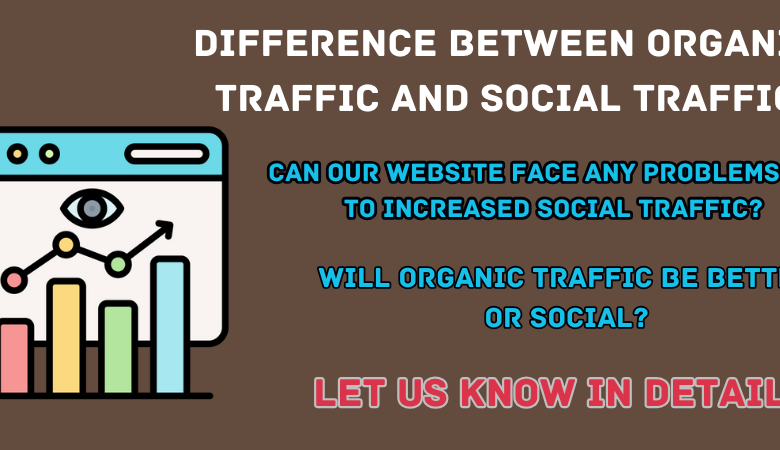Difference Between Organic Traffic and Social Traffic 2024

Introduction: In the realm of digital marketing, two primary sources drive traffic to websites: organic and social. While both are crucial for a well-rounded online presence, understanding their differences and functionalities can significantly impact your website’s success. Let’s delve into the nuances of organic traffic and social traffic to grasp their unique potentials.
What is Organic Traffic?
Organic traffic refers to visitors who land on your website through unpaid, natural search engine results. When users type in a query on search engines like Google, Bing, or Yahoo, and your website appears in the search results without any payment for placement, it’s considered organic traffic. This traffic is driven by the relevance and quality of your website’s content, along with search engine optimization (SEO) strategies.
Understanding Social Traffic:
Social traffic, on the other hand, originates from social media platforms such as Facebook, Twitter, Instagram, LinkedIn, and others. When users click on a link to your website shared on social media, it generates social traffic. This type of traffic is heavily influenced by your social media presence, engagement, and the effectiveness of your social media marketing efforts.
Key Differences:
Visibility and Reach: Organic traffic primarily depends on search engine rankings, which can be influenced by factors like keywords, content quality, and backlinks. Social traffic, however, relies on the reach and engagement of your social media posts and campaigns.
Intent: Organic traffic often reflects users actively seeking information or solutions, making it highly targeted. Conversely, social traffic may include users casually browsing through their social feeds, with varying degrees of purchase intent.
Sustainability: Organic traffic tends to be more sustainable over time, as well-optimized content can continue to attract visitors long after its initial publication. Social traffic, while immediate and impactful, may diminish once the social media post loses visibility in users’ feeds.
Impact on Website Performance
Organic traffic is instrumental in building long-term authority and credibility for your website. It signifies that your content is relevant and valuable to users, leading to higher conversion rates and returning visitors. Social traffic, on the other hand, can provide quick bursts of visitors and amplify your content’s reach, especially when coupled with engaging social media strategies.
Conclusion: In the dynamic landscape of digital marketing, both organic traffic and social traffic play vital roles in driving visitors to your website and expanding your online presence. Understanding the nuances between these two sources of traffic empowers you to leverage them effectively, ultimately contributing to the success of your website and business endeavors.
By optimizing your website for search engines and maintaining an active presence on social media platforms, you can harness the full potential of both organic and social traffic to achieve your marketing goals and foster sustainable growth for your online ventures.





Very interesting points you have noted, thank you for posting.Expand blog